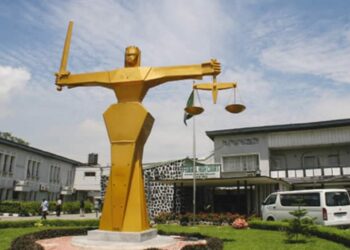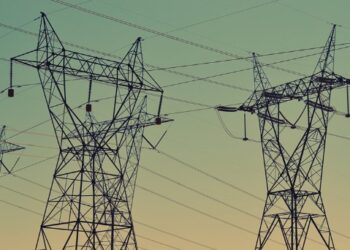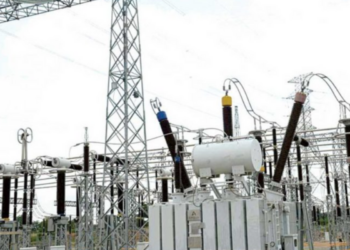The Federal High Court sitting in Abuja has been asked to restrain the Nigeria Electricity Regulatory Commission (NERC) and the Abuja Electricity Distribution Company (AEDC) from giving effect and continuing with the implementation of multi-year tariff order 2024 which classified electricity consumers into Band A to E.
The requests were made in the suit filed by Barrister Festus Sanmi Onifade, who stated he sued for himself and on behalf of other consumers in suit no FHC/ABJ/CS/492/2024.
In his affidavit in support of the originating summons dated April 16, 2024, and seen by Nairametrics, Onifade contested the various power supply timelines set for residents in Nigeria, insisting that a 20-hour power supply to Band A residents alone amounts to preferential treatment and discrimination of other Nigerians.
He faulted the electricity price increment and downgrading insisting that he and other customers who are on B, C, D and E are seeing their fundamental right to freedom from discrimination being breached by the development.
He stated,
- “l am a legal practitioner practising my trade within the jurisdiction of the court and by virtue of my practice, l am conversant with the 1999 Constitution of the Federal Republic of Nigeria, the Electricity Act, 2023 and laws regulating the Review of Electricity supply in Nigeria and Consumer Rights in Nigeria.
- “That in addition to the above, I am a loyal Customer and Consumer of the product and services of the 2nd Defendant in Abuja with meter No. 04177493725 within the jurisdiction of this Honourable Court.
- “That on the 3rd April 2024, the 1st Defendant introduced a policy of classification of the Claimant and other 2nd Defendant’s customers into bands A, B, C,D, and E, and the said classification policy took immediate effect.
- “That by virtue of this classification, the 1st Defendant classified the 2nd Defendant’s Customers Living in the high brown urban areas of Maitama, Asokoro, Aso villa to Band A to enjoy electricity supply for 20 hours and above.
- “Similarly, by the same classification, the 1st Defendant classified the Claimant and other 2nd Defendant’s Customers living in less privileged areas to Band B, C D and E thereby consigning these categories of customers to a perpetual state of lower, limited electricity supply of 16 hours for customers on band B, 12 hours and above for Customers on Band C, 8 hours and above for Customers on band D and 6 hours and above for Customers on Band E respectively.
- “That the policy of classification of the 1st and 2nd Defendants gives a preferential treatment of electricity supply to Customers in band A over and above the Claimant and other customers in band B, C, D and E respectively.
- “That the present policy and the introduction of new tariffs were done without the knowledge of many of the distribution companies.”
The applicant’s lawyer, Moses Awuru Esq told the court that unless it intervenes, the injury and breach occasioned by the policy of classification of electricity supply to AEDC’s customers will persist.
The Claimant thereby sought the following reliefs:
“A DECLARATION that the Policy of classification of the Claimant and other Consumers by the 1st Defendant into band A, B, C, D and E is a breach of the Claimant’s and other Consumers fundamental Right to freedom from discrimination as enshrined in the African and Human and People Right’s and the Constitution of the Federal Republic of Nigeria 1999 (As Amended) and therefore unconstitutional, unlawful, illegal, null and void.
- ” AN ORDER of this Honourable Court perpetually restraining the Defendants, their privies, agents and another person from giving effect and continuing with the implementation of Multi-Year Tariff Order 2024 and increase in the of prices of Electricity and downgrading of the Claimant and other Customers by classification into Bands A, B, C, D, E forthwith.
- “AN ORDER of this Honourable Court mandating and compelling the Defendants to pay the Claimant jointly and severally the sum of N5,000,000.00 (five million Naira) only for breach of the Claimant’s fundamental right to freedom from discrimination by the Defendants.
- “AN ORDER of this Honourable Court directing and mandating the Defendants jointly and or severally to pay the Claimant the sum of N1, 000,000.00 (One Million Naira) only as Cost of this suit.
Motion on notice
In his motion on notice seen by Nairametrics, Ewuru sought an order of interlocutory injunction restraining NERC, AEDC and the Attorney-General of the Federation from continuing with the policy of classification of Nigerian customers to Band A, B, C, D and E by their location and increasing their tariffs pending the hearing and determination of the substantive suit.
He also urged the court to restrain the defendants from taking any special step that may negatively affect the rights of the claimant pending the hearing and determination of the suit.
He stated that he has raised a series of laws which need to be determined urgently for the benefit of Nigerians.
No date has been fixed for hearing of the matter.
Backstory
- Nairemetrics previously reported that the NERC announced a new electricity tariff increase for customers in the Band A category from N66/kWh to N225kWh, that is, those enjoying a 20-hour electricity supply daily.
- NERC revealed the Federal Government planned to save N1.5 trillion with the tariff adjustment while subsidizing Bands below the A classification.
- The Commission had fined Abuja Disco N20 million for wrongfully billing Band B customers with Band A electricity tariff rate.
- The policy intends to align tariffs with the quality of service provided, and the latest order from the NERC aims to ensure that DisCos fully recover operational costs and earn a reasonable return on investment.
- The court has now been invited to interpret the legality of NERC’s policy among other things.






















